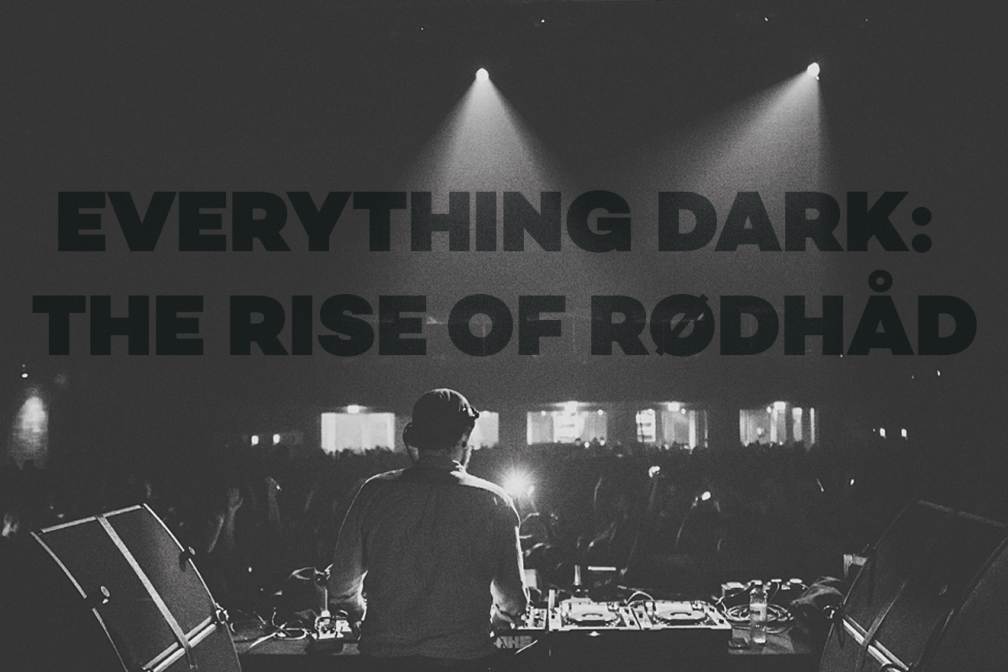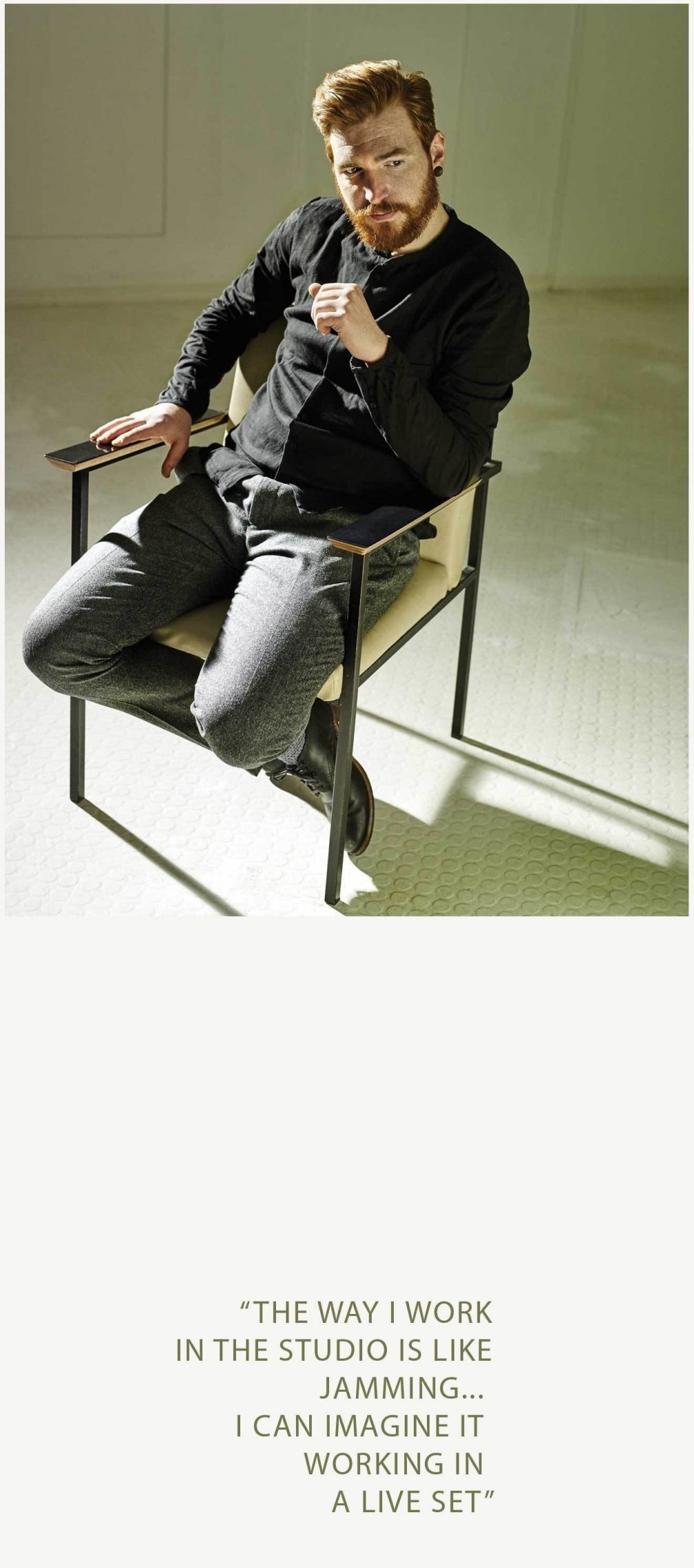 Cover stars
Cover stars
Everything dark: The rise of Rødhåd
Rødhåd’s outsider graft and visions of dystopia have made him one of the leading techno stars on the planet

“I was always a fan of a certain sort of movie – Blade Runner, The Matrix, Running Man,” says Bierbach, who knew that they had found the right name after his label manager called him from an all-night session at a beach-based festival. The inspiration had come as he dreamed of being able to replace the bright sun with the dark confines of the more familiar raving space of Berghain. “When you show people who are observed by a bigger authority, like in those movies when society is divided, I’d always identify with those people who would be living hidden in the underground. When you went to Tresor or Berghain it was like entering a new, unseen society,” he says. “Everything dark, the sound of machines. It was a perfect aesthetic: visually and in sound. And maybe we identify with it, because we’re from the East of Germany. There was always this feeling that we were the outsiders, from the corner of society; that we were being watched.”
“We weren’t actually that subversive,” he adds, laughing. “I mean, we had good parents, I had a job. It’s not like I was one a revolutionary desperate for a struggle with authority. It was just what we could see.”
The first DystopiaN party was held in 2009 and after a fitting line-up of guests (including Ben Klock, Shed and Sandwell District), Rødhåd (who had changed his name from Redhead, or locally Der Rote, for the party after discovering a DJ from Belgium was using the same name) took to the stage to play the kind of epic closing set he’s since become famed for. They had shown the futuristic 1927 black-and-white Fritz Lang movie Metropolis as part of the backdrop, bolstering the aesthetic, and Rødhåd set the tone for future parties and more far-flung excursions that night with his trademark shifts through space, percussion, dub and psychedelic techno sounds.
The Dystopian label followed in 2012, debuting with Rødhåd’s own Orwell-inspired ‘1984’ EP. Since those first steps it has grown, in direct correlation to the confidence of Rødhåd’s own productions, and undoubtedly had its most musically diverse and accomplished year in 2015 with releases from Daribow, Stone Edge, Armitage, Distant Echoes and two EPs from Rødhåd himself. Alongside his haunting 2015 remix of Howling’s ‘Signs’ these EPs mark a distinct high point in terms of Rødhåd’s production career and a distillation of the dark and melancholy mood that characterise Dystopia.
“For me, sad feelings are stronger than happy feelings,” says Bierbach. “That doesn’t mean I’m a sad person. Everyone who knows me can attest that I’m a happy person. But for me, when I search for music, even on the radio, if I hear that kind of uplifting sound, [he mimics inane, cheerful radio music], it doesn’t transmit any real emotion for me. I’m more touched when I hear sad songs, a melancholy vibe. It’s more real than this... instant happiness.”
His increased output and marked evolution as a producer suggest that a debut album could be on the cards, and he admits this is something he’d like to complete, time permitting, before the end of 2016. Although as a thoughtful and careful planner, his current stage of deciding just what makes a great techno album could – like the fact that he’s currently moving and building a new studio – hinder any deadlines. Self-taught in the studio, his fondness for the technical lending itself well to hours spent reading hardware and software manuals, he cites Efdemin’s last album and Ben Klock’s 2010 release
as benchmarks.
He’s also excited by the prospect of playing live. “The way I work in the studio is more like jamming, and that way of working is more how I can imagine working in a live set, perhaps in collaboration. It doesn’t have to be a proper peak-time live set for clubs, it could maybe be something more experimental, for a festival.”
Juggling the future studio work he is relishing with the amount of commitments he currently undertakes in a ceaseless DJ schedule (he only takes time off for a break in September) is not going to be an easy task for Mike Bierbach. But he’s clearly not a man who will acquiesce easily when his vision is challenged. The future looks to be more promising and full of possibilities than ever: hardly dystopian at all...
Rødhåd plays Belfast’s AVA Festival on June 4 and London’s Found festival on June 11


